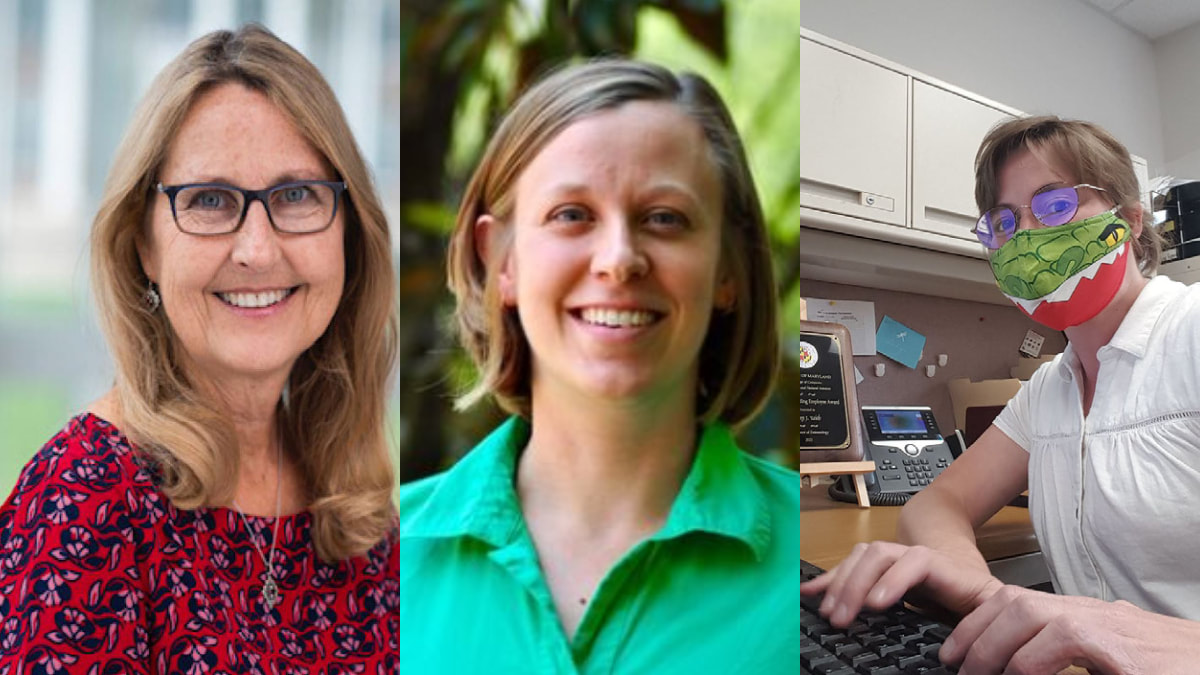 Check out our Spring 2021 Department of Entomology Newsletter to see what we've been up to! Content includes news on publications, awards, defenses, media mentions and much more. Is there something you'd like to see in the Summer 20201 edition? Let us know by sending an e-mail to [email protected].
Congratulations to Associate Professor Dennis vanEngelsdorp for being named Highly Cited Researcher by Clarivate's Web of Science for the 5th year in a row!
See Clarivate's list here>>  Congratulations to Distinguished University Professor Margaret Palmer recipient of the Helmholtz International Fellowship Award for Excellent Researchers. These fellowships are "aimed at outstanding senior scientists who have distinguished themselves through their work in areas relevant to Helmholtz. The prize is awarded in recognition of the scientific merits and is endowed with a total of 20,000 euros." She was recognized for "cutting edge work in hydrology and ecology" and "pioneer work at the interface of science and society." Once COVID-19 travel restrictions are lifted, Margaret will be spending time at the Helmholtz Center for Environmental Research in Leipzig, Germany with the option to collaborate with scientists at other Helmholtz centers. On the Hawaiian Islands invasive black rats are eating native and introduced birds. The long-term ecological impact of the rats' taste for island birds will depend on whether or not the rats are preying upon birds or scavenging their dead remains, a species interaction that can be difficult to verify through observation alone. So scientist from Smithsonian’s Center for Conservation Genomics and the Gruner Lab (grad student Madhvi Venkatraman, former postdoc Erin E Wilson Rankin and Associate Prof. Daniel S. Gruner) set out to find another way to measure these hard to see interactions. They worked out a method of using bacterial biomarkers in the rat's stomach and feces to tell whether the birds consumed were alive or dead. Their paper entitled, “Identification of novel bacterial biomarkers to detect bird scavenging by invasive rats”, was published earlier this year in Ecology and Evolution, DOI: https://doi.org/10.1002/ece3.7171.
by Taís Ribeiro and Max Ferlauto
Climate change is having a drastic effect on species across the globe, our own included (Pachauri et al 2014). We have not only witnessed increases in mean temperatures but also extreme weather events like heat waves (Pachauri et al 2014). Although there are many studies looking at the impacts of climate change on particular species, research on the effects of climate change on species interactions is still limited. An important type of species relationship is a host-parasitoid interaction such as what occurs between an insect and its parasitoid wasp. Parasitoid wasps are tiny insects that lay their eggs in other insects. The eggs then hatch and consume the host while it is still alive. There are thousands of parasitoid wasp species. In fact, their order, Hymenoptera, may be the most diverse animal order in the world because of their high degree of specialization with their hosts (Forbes et al., 2018). In order to parasitize eggs, larvae, or pupae, parasitoids must align their life cycle with that of their hosts. But what happens when climate change increases temperatures and extreme climatic events? Does this misalign the host and parasitoid life cycles? This spring Maggie Hartman, M.S. student in the Lamp Lab, entered the Campus-Level Three-Minute Thesis competition and won! Maggie says distilling her thesis, ‘Dragons on the farm: A novel approach to determining dragonfly diet in agroecosystems', into a 3-minute video for a public audience was an interesting challenge.
Choose "read more" to find out more about Maggie’s initial interest in the competition, her approached to the task, her initial “shock” to have won and what’s next for her and her competitors.  Dr. Bretton Kent, Principal Lecturer in the Department of Entomology will be retiring this semester. Dr. Kent has a long and impressive history with UMD. Dr. Kent received his B.S. degree in 1973 from Oregon State University, a M.S. degree in Zoology from Oregon State, and his Ph.D. in 1981 from University of Maryland, College Park. The focus of his education was Zoology, a field he has continued to pursue throughout his career. After receiving his Ph.D., Dr. Kent worked as a Research Affiliate here at the University of Maryland, while simultaneously initiating his role as Instructor. Initially appointed in the Department of Zoology, Dr. Kent was recruited to the Entomology Department in 1997, where he was appointed as Instructor and Director of Undergraduate Studies. In addition, since 2005, Dr. Kent has been actively involved in the Master of Chemical & Life Science Program, serving as Associate Director and Director of this online Masters Program. Choose "Read More" to find out more about Dr. Kent's exceptional career. |
Categories
All
Archives
June 2024
|
Department of Entomology
University of Maryland
4112 Plant Sciences Building
College Park, MD 20742-4454
USA
Telephone: 301.405.3911
Fax: 301.314.9290
University of Maryland
4112 Plant Sciences Building
College Park, MD 20742-4454
USA
Telephone: 301.405.3911
Fax: 301.314.9290


 RSS Feed
RSS Feed




